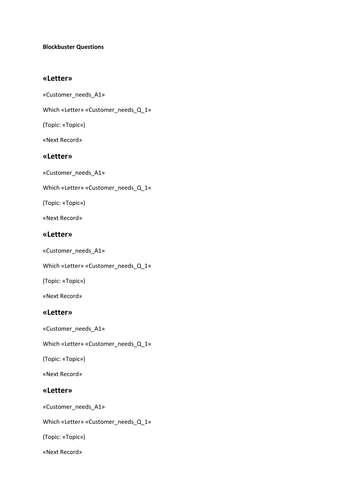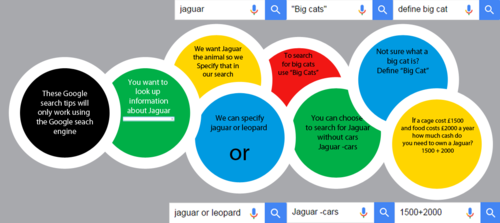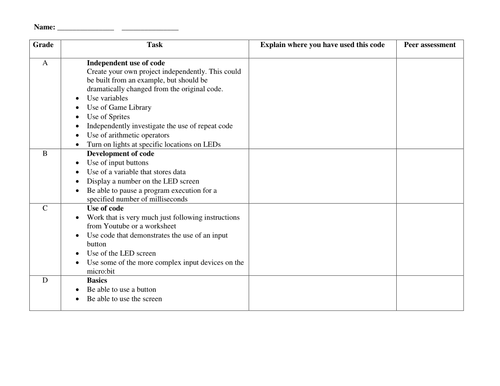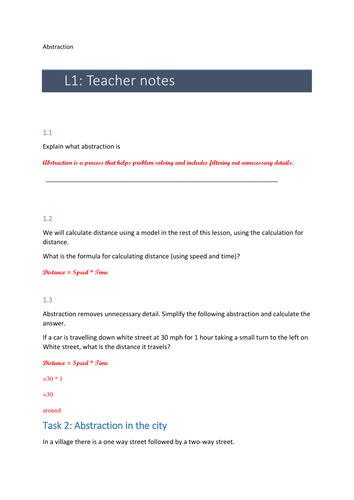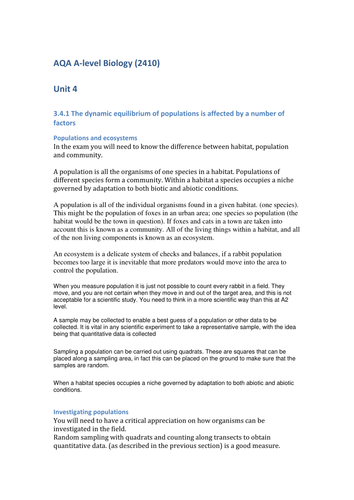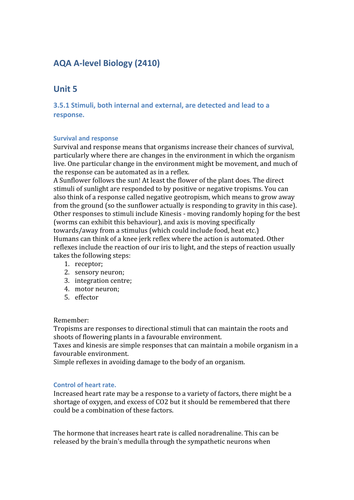
546Uploads
228k+Views
80k+Downloads
All resources

Hex Game for GCSE Business studies (EDEXCEL questions)
Hex style game for GCSE Business Studies (EDEXCEL) with questions.

Google skills for KS3
Two lessons for KS3 around improving Google skills.
Can be used as cover lessons, or to help you expand student's knowledge of the world's most popular search engine.

AppInventor Computing Programming Scheme of work for KS3
Full scheme of work including video tutorials for each section.
5 lessons including Assessment sheet. This resource has 23 separate files, all the preparation is done so pretty much all you have to do is check it over and go!
Includes all resources and potential exam questions that can be set for homework or for a test.

Pokémon GO Viruses, Malware Computing lesson for KS3 and KS4
Students learn about how installing Apps onto mobile phones needs some consideration.
Learning objectives:
o Be aware that Apps from alternative sources may not be safe
o Understand that you exchange some element of privacy in exchange for using Apps on a phone
The narrative flow of the lesson follows the following:
• How malware is installed on computers
• How malware is social engineering - making people install Pokémon go from other sources is dangerous
• Pokémon Go is actually known as malware for some people!
• Pokémon Go was just the type of App that people were excited to get they would take risks for: but was this worth it?

Spotting a business opportunity Revision for GCSE Business Studies (Edexcel)
Full revision session for GCSE Business Studies for Edexcel. Includes multiple choice questions.
https://youtu.be/CUF7Zo_nL1U

Spotting a business opportunity GCSE Business Studies Unit
Full unit of work created for Edexcel GCSE Business Studies
1.1 - Spotting a business opportunity
Contains the following lessons
Introduction to business
Types of business
Liability
Sole traders
Limited and Public Limited companies
Franchises
Customer needs
Market mapping and analysing markets
Analysing Competitors
Adding Value
Location

GCSE Business Studies - Types of organisation (Edexcel)
GCSE Business Studies exercise for types of organisation
Split into several groups. Students write down the advantages and disadvantages of each organisational type.
Students then share the results, and fill out the worksheet l5-Table-Types-of-business.docx

micro:bit (microbit) three lesson KS3 Scheme of work (SoW)
Three lesson scheme of work for KS3 including worksheet and explainations!
Each lesson has video support

GCSE PE Multiple choice questions
More than 100 GCSE PE multiple choice questions.
One copy has no answers, one copy has the correct answer highlighted in bold.
Possible uses include games, revision sessions and so on.

Abstraction Computing Lesson for KS3
Two different ways of teaching abstraction to a Key Stage 3 audience.
One way is by using logos and Photoshop (Abstraction and Logo Design).
The other included way is by creating a model in Microsoft Excel (Abstractionmodel).
Both very successful lessons to explain this important concept.

Putting a business idea into practice GCSE Business Studies Unit
1.3 - Putting a business idea
Created for Edexcel GCSE Business Studies
Objectives
Profit
Cash Flow
Financing a small buiness
The Business Plan

Showing Enterprise GCSE Business Studies Unit
Full unit of work created for Edexcel GCSE Business Studies
1.2 - Spotting a business opportunity
Enterprise and Entrepreneurs
Thinking Creatively
Invention and Innovation
Calculated Risks

GCE A Level Biology Unit 4 notes for AQA
GCE A Level Biology notes written for the AQA specification Biology (2410).
The topics covered in the revision guide are detailed here:
Unit 4
3.4.1 The dynamic equilibrium of populations is affected by a number of factors.
3.4.2 ATP provides the immediate source of energy for biological processes.
3.4.3 In photosynthesis, energy is transferred to ATP in the light-dependent reaction and the ATP is utilised in the light-independent reaction.
3.4.4 In respiration, glycolysis takes place in the cytoplasm and the remaining steps in the mitochondria. ATP synthesis is associated with the electron transfer chain in the membranes of mitochondria.
3.4.5 Energy is transferred through ecosystems and the efficiency of transfer can be measured.
3.4.6 Chemical elements are recycled in ecosystems. Microorganisms play a key role in recycling these elements.
3.4.7 Ecosystems are dynamic systems, usually moving from colonisation to climax communities in the process of succession.
3.4.8 Genetic variation within a species and geographic isolation lead to the accumulation of different genetic information in populations and the potential formation of new species.

Understanding the economic context GCSE Business Studies Unit
1.5 - Understanding the economic context
Created for Edexcel GCSE Business Studies
Market demand and supply
Impact of changes in interest rates on small business
Impact of changes in exchange rates
How do business cycles affect small business
What effect do business decisions have on stakeholders

Making the start-up effective GCSE Business Studies Unit
1.4 - Making the start-up effective
Created for Edexcel GCSE Business Studies
Customer focus
The marketing mix
The importance of limited liability
Start-up legal and tax issues
Effective on-time delivery and customer satisfaction
Recruiting, training and motivating staff

GCE A Level Biology Unit 5 notes for AQA
GCE A Level Biology notes written for the AQA specification Biology (2410).
The topics covered in the revision guide are detailed here:
Unit 5
3.5.1 Stimuli, both internal and external, are detected and lead to a response.
3.5.2 Coordination may be chemical or electrical in nature.
3.5.3 Skeletal muscles are stimulated to contract by nerves and act as effectors.
3.5.4 Homeostasis is the maintenance of a constant internal environment.
3.5.5 Negative feedback helps maintain an optimal internal state in the context of a dynamic equilibrium. Positive feedback also occurs.
3.5.6 The sequence of bases in DNA determines the structure of proteins, including enzymes.
3.5.7 Gene expression is controlled by a number of features.
3.5.8 Gene cloning technologies allow study and alteration of gene function in order to better understand organism function and to design new industrial and medical processes.

GCE A Level Biology Multiple Choice Questions for Unit 4 for AQA
More than 90 A Level Biology multiple choice questions.
One copy has no answers, one copy has the correct answer highlighted in bold.
Possible uses include games, revision sessions and so on.

GCE AS Level Biology Multiple Choice Questions for Unit 1 for AQA
More than 40 AS Level Biology multiple choice questions.
One copy has no answers, one copy has the correct answer highlighted in bold.
Possible uses include games, revision sessions and so on.

GCE A Level Biology Multiple Choice Questions for Unit 5 for AQA
More than 50 A Level Biology multiple choice questions.
One copy has no answers, one copy has the correct answer highlighted in bold.
Possible uses include games, revision sessions and so on.

GCE A Level Business Studies Multiple Choice Questions for AQA (Legacy spec)
More than 100 A Level Business Studies multiple choice questions.
One copy has no answers, one copy has the correct answer highlighted in bold.
Possible uses include games, revision sessions and so on.

